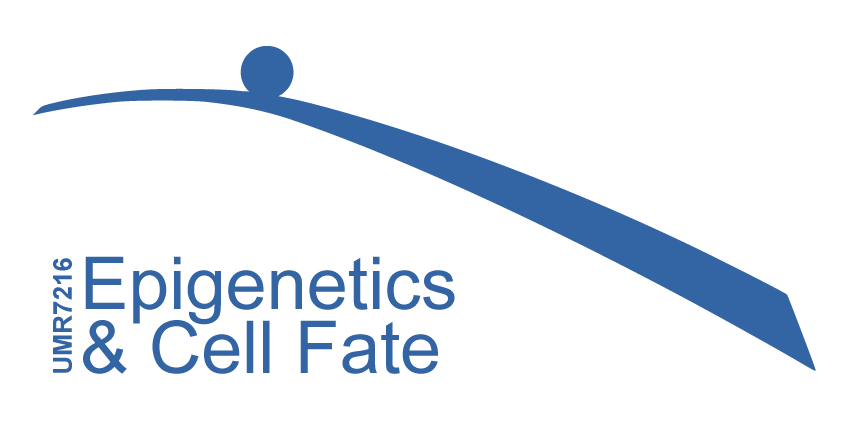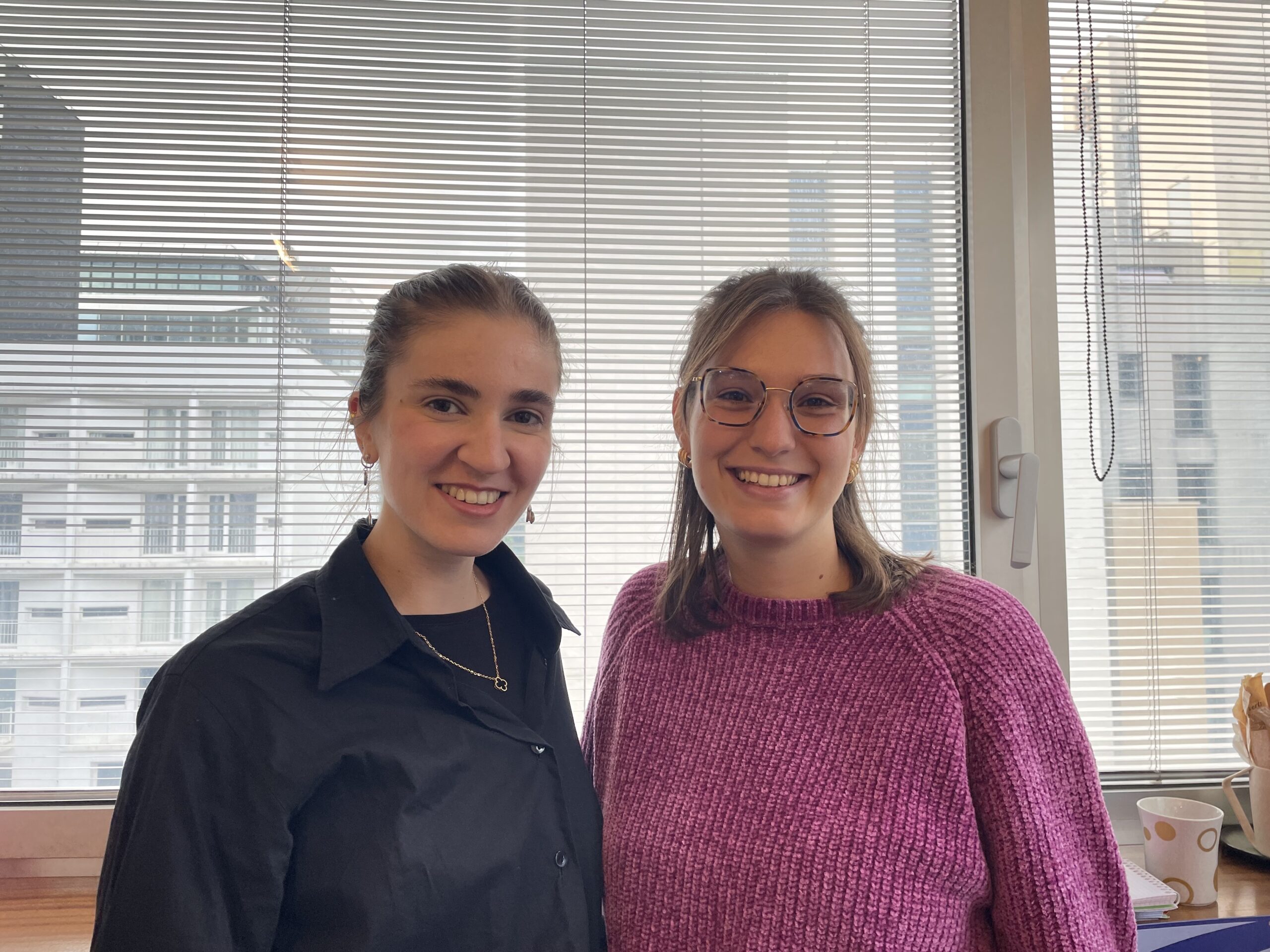YES: Young Epigenetic Scientists club
YES (Young Epigenetic Scientists) is a club set up in February 2024 in the Epigenetics and Cell Fate Center to help Ph.D. students, Post-Docs, and Engineers driven by a common desire to explore work opportunities beyond academia. Recognizing the need to understand and prepare for the diverse career pathways available to us, we have come together to promote exchanges outside the academic field.

Mission:
The YES club aims to provide a space where early-career researchers can exchange experiences, gain practical knowledge, and explore diverse career opportunities. We seek to facilitate connections between young scientists and professionals from academia, industry, and related fields, helping our members make informed choices about their professional development. Through regular events and discussions, YES promotes a supportive and collaborative environment that encourages curiosity, openness, and mutual learning — empowering young researchers to build meaningful careers within and beyond academic science.
Our activities:
We organise two to three events each semester, where we invite two guest speakers with backgrounds in scientific academic research. Some have continued their careers within academia, taking on roles in laboratory management, innovation, communication, or project coordination. Others have moved to industry or other sectors, working in R&D, consulting, sales, science communication, technology transfer, and beyond.
Our events follow an informal and interactive interview format, encouraging open discussion and direct questions from the audience. Each session ends with an aperitif offered by the club — a friendly moment to network, share experiences, and connect with fellow researchers in a relaxed atmosphere.
Next event
Monday, April 22, 2024 – Professional afterwork
Thursday, June 27, 2024 – 2024 Young Scientists Day (BFA-IJM-EDC) – https://epigenetics.u-paris.fr/event/yes-events/
Are you a researcher who feels uncertain about your next career step?
Contact us:
Read more
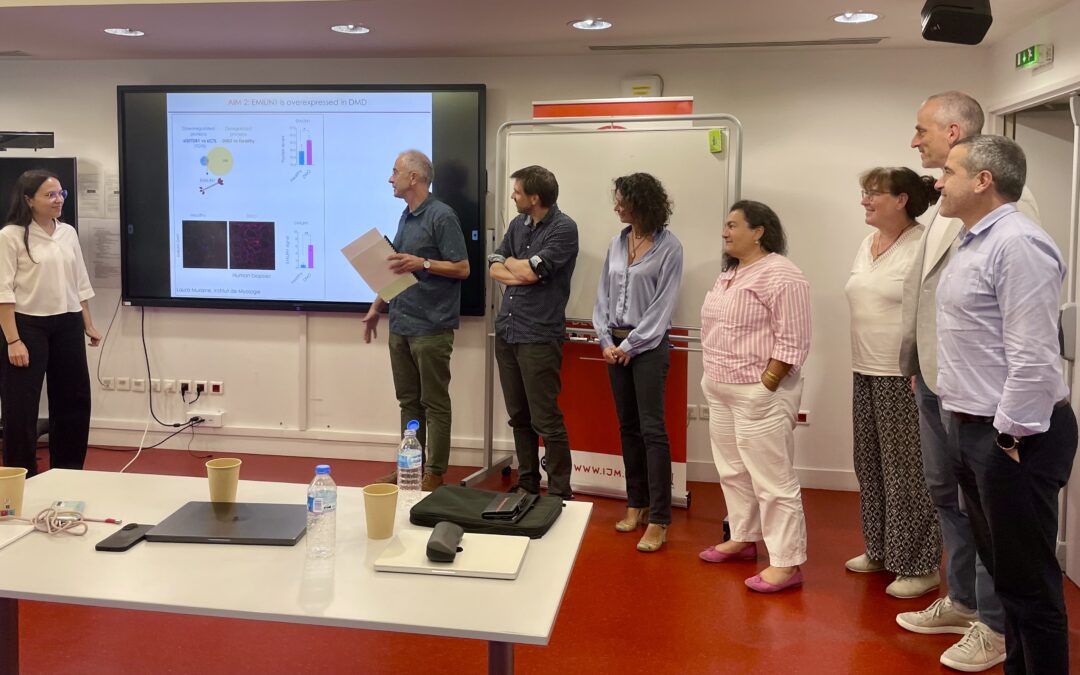
Congratulations to Dr. Maeva Zamperoni!
On September 15, 2025, Maeva successfully defended her thesis: “Role of the lysine methyltransferase SETDB1 in TGFβ-induced fibrosis in Duchenne Muscular Dystrophy (DMD).”Maeva and the jury members: Pascal Maire, Nicolas Reynoird, Sestina Falcone, Frédérique...
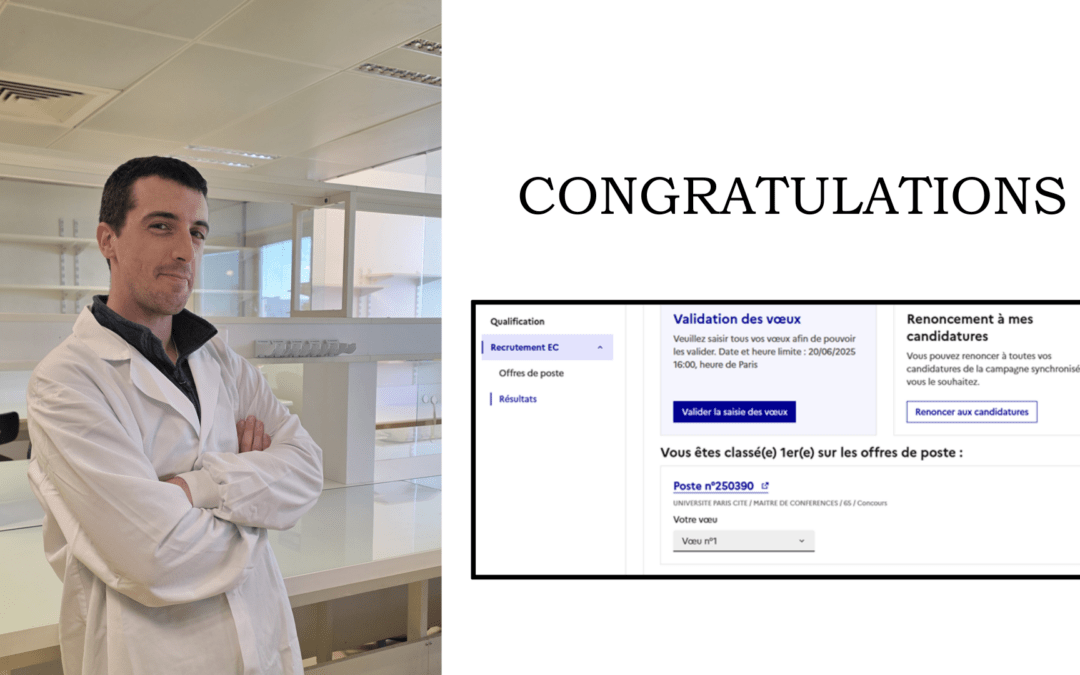
Congratulations to Jérémy, newly appointed Associate Professor!
We are delighted to announce Jérémy Berthelet's success in the Assistant Professor competition!On September 1, 2025, Jérémy officially joined our laboratory as a civil servant lecturer-researcher (trainee). This position is an important step, not only in his career,...
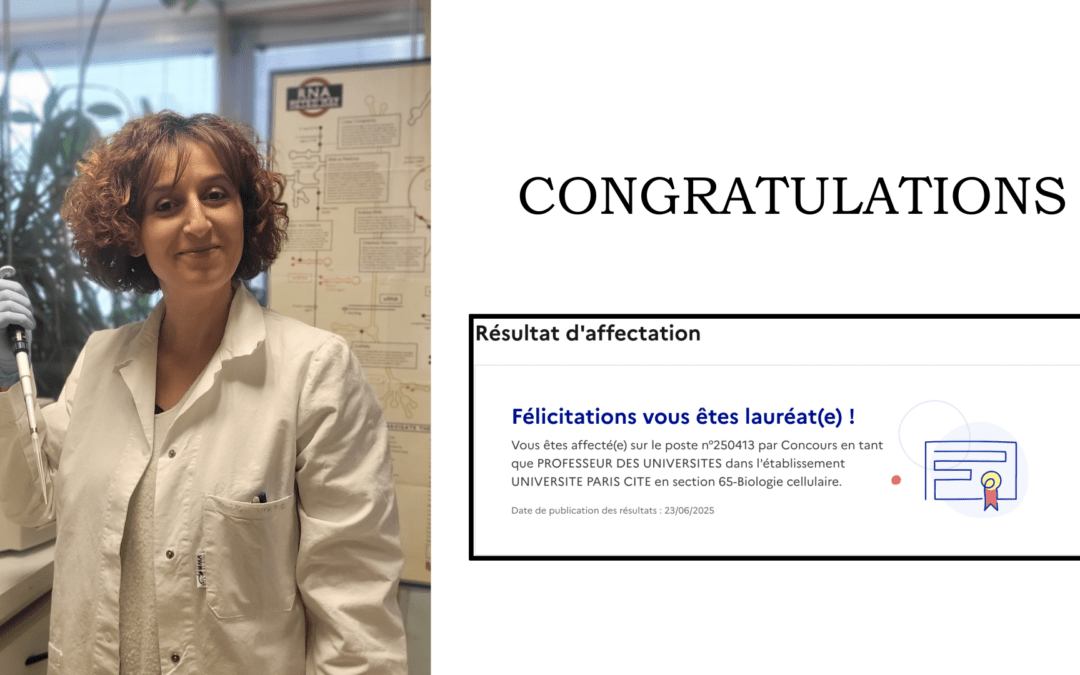
Congratulations to Souhila, promoted full Professor !
We are delighted to announce the success of Souhila MEDJKANE, who has been promoted to full Professor!On September 1, 2025, Souhila was officially promoted to Professor. This is a major milestone in her career, and a source of great pride for our team and the teaching...

4th year PhD fellowships for Anaëlle
Congratulations to Anaëlle Azogui for obtaining a 4th year PhD fellowships from the "Fondation pour la recherche sur le cancer" (Fondation ARC). Read more
